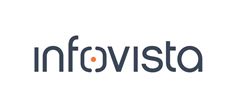Rocket Lab has ‘misrepresented’ Neutron launch readiness, congressional memo says
An internal congressional memo viewed by TechCrunch casts strong doubt on Rocket Lab’s claim that its Neutron rocket will be ready for launch in time to meet a crucial contract deadline from the Space Force.
“In light of public reporting and media pressure, Rocket Lab has escalated their campaign to misrepresent their launch readiness in an effort to gain competitive advantage over incumbents and other new entrants by on-boarding into NSSL Phase 3 Lane 1 at the first opportunity in 2024,” the memo, viewed by TechCrunch, says. “Public records and information available to staff confirm that Neutron has no credible path to launch by 12/15/2024.”
Rocket Lab declined to comment for this story.
Such memos are used to inform congressional officials on particular issues and make recommendations on proposed actions. This memo, which was written by congressional staffers and circulated on Wednesday to other offices, including those in the Senate Armed Services Committee, states that Rocket Lab has “repeatedly assured” these staffers that the company has a credible path to launch by December 15.
That is the date by which the Space Force’s Space Systems Command said launch providers must be ready to fly in order to qualify for launch contracts under a program called National Space Security Launch (NSSL) Phase 3. Those contracts will reportedly be worth multiple billions of dollars to cover launches from 2025 through 2034.
In response to industry feedback, Space Systems Command changed its procurement strategy for the next batch of national security launch contracts to accommodate newer launch providers. Under the new strategy, the contracts are split into two groups: Lane 1 is for newer rockets, while Lane 2 is for established providers that can fulfill the full range of mission requirements.
While Rocket Lab has never publicly confirmed that it has bid under Lane 1, in an earnings call on Tuesday, CEO Peter Beck suggested the company was pushing hard to complete Neutron development by the end of this year in order to meet that deadline: “We’re tracking that Lane 1 pretty closely and we spent a lot of time with the Space Force to advocate for that Lane 1,” he said. “Hence the reason why we’re pushing so hard to get the vehicle in a launch for this year, because it’s a gating on-ramp to Lane 1.”
As Beck went on to note, providers who do not meet this year’s readiness date will have another opportunity to bid on contracts the following year.
Neutron is Rocket Lab’s medium-lift vehicle and is being added as a complement to its successful small Electron rocket. Neutron will be powered by a new engine called Archimedes, and the company is aiming to start hot fire tests of that engine around March; Beck said the company will know more about how close to the timeline they are “once Archimedes breathes fire” during testing.
Uncertainties around Archimedes’ hot fire tests are “the biggest issue” in Rocket Lab’s claims, the memo argues.
Beyond the actual rocket testing, much of the timeline depends on completions to the launch pad and other infrastructure at NASA’s Wallops Flight Facility, which is being built by a state agency, Virginia Commercial Space Flight Authority. The most recent RFP issued by that agency for the launch infrastructure has an anticipated completion date of November 29, 2024 — which leaves a scant two weeks until the launch deadline. It is unclear whether any additional RFPs are forthcoming or when the RFP schedule was finalized. VCSFA did not respond to TechCrunch’s request for comment by publication time.
On the company’s earnings call, analysts also asked Beck about the RFP, and he pointed to Rocket Lab’s track record of developing launch pads in short timelines. But the congressional memo argues that the Neutron pad has significantly different “scale, propellant type, and architecture” compared to the company’s existing pads. It also highlights proprietary timelines shared by other launch providers that suggest there is much work left to be included in RFPs by the VCSFA.
The memo includes a slide from 2023 prepared by Space Systems Command that suggests the agency will begin source selection in the second quarter of the fiscal year and announce the Lane 1 awards in the middle of the third quarter, which runs from April to June.

